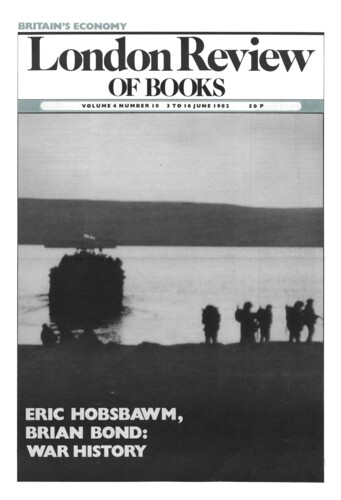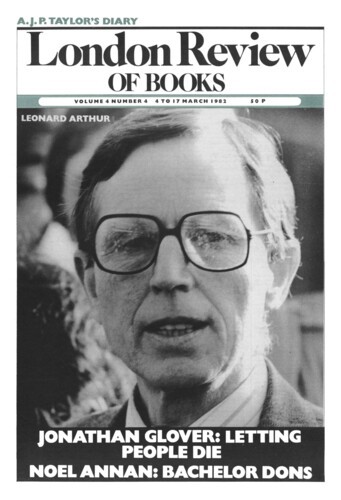Eclipse of Europe
Brian Bond, 3 June 1982
When a marriage disintegrates in mutual misunderstanding and recrimination, it is no good looking to either partner – or to their families – for a complete and objective explanation. The analogy with sovereign states is, of course, far from exact, and anyway historians are trained to surmount nationalist bias. Nevertheless British and French historians of the tragic termination of their countries’ ‘affair’ in 1940 have in practice found it extremely difficult to write dispassionately, and even harder to interpret controversies sympathetically from the other’s viewpoint. Some French historians, and especially surviving participants after 1945 such as Reynaud, Gamelin and Weygand, have pointed to Britain’s tardy and meagre contribution to the land battle, her refusal to send all-out air reinforcement at a critical time and her precipitate withdrawal from the Continent. The British have been equally inclined to overtook their own shortcomings in placing responsibility for defeat at the door of their allies. Both have also tended – like a quarrelling couple turning against a well-meaning third party – to place excessive blame for their military collapse on the luckless Belgian Army and its royal commander-in-chief.


